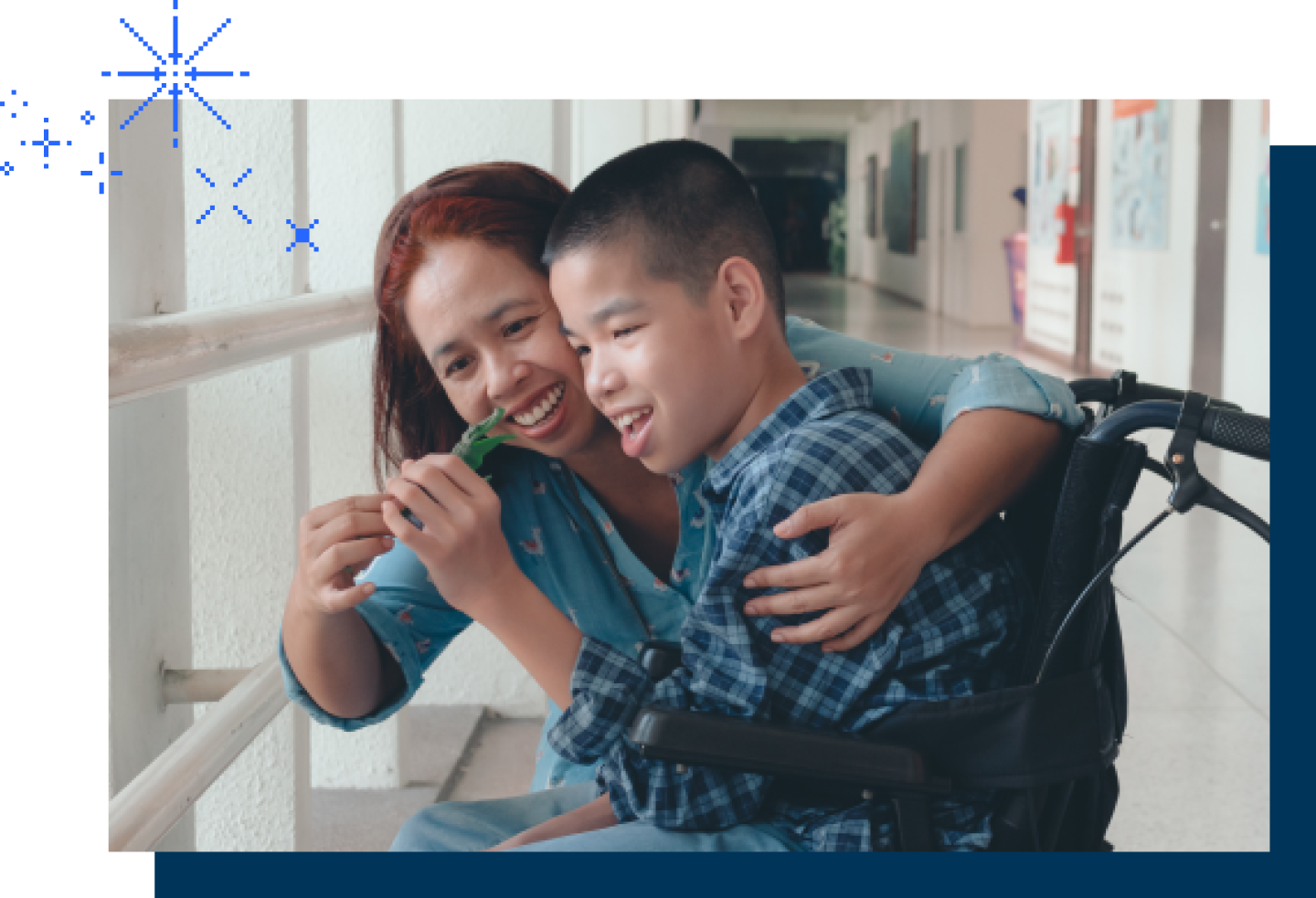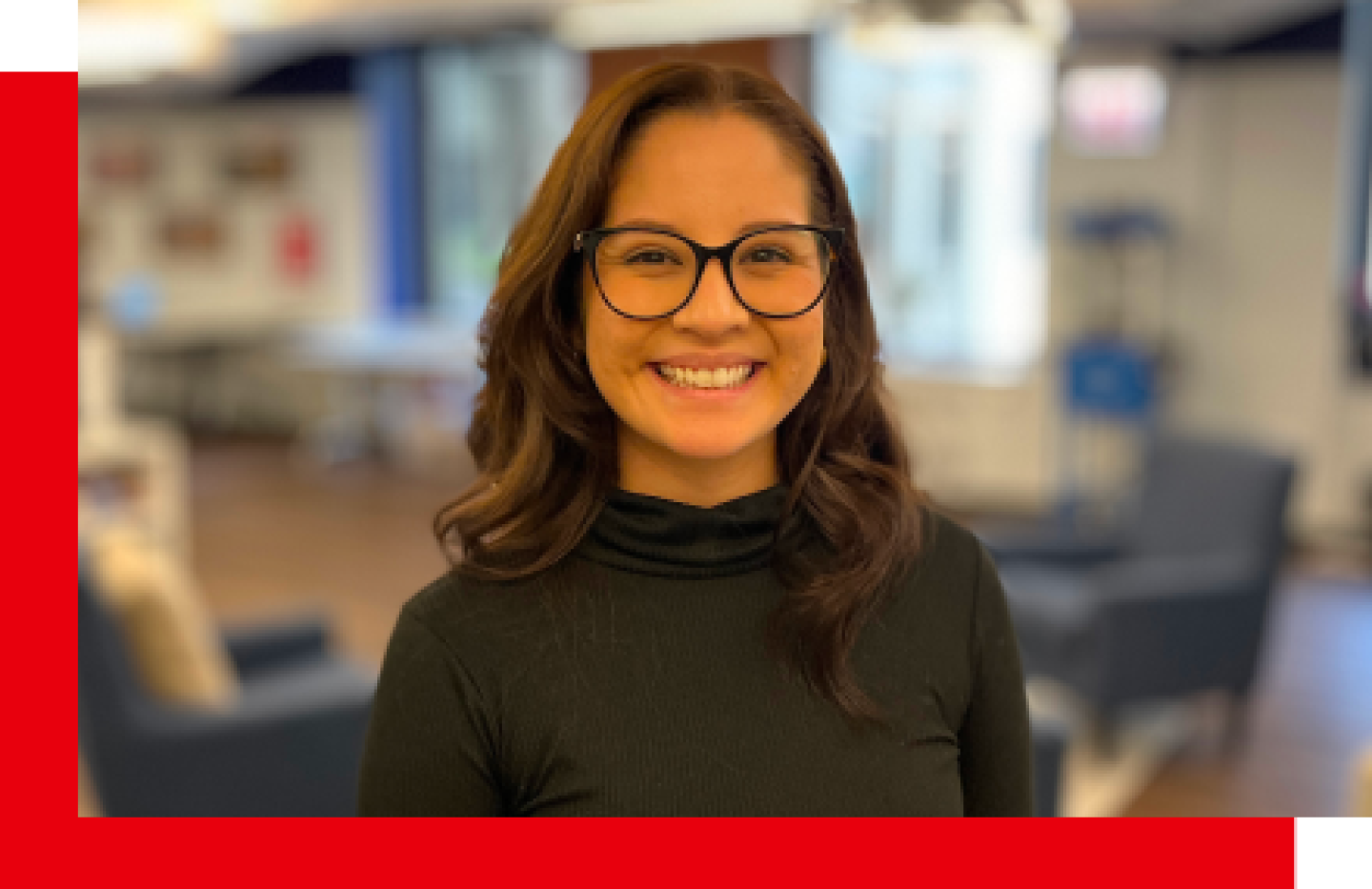Earn your master’s in secondary special education and transition at KU
Every student deserves meaningful pathways. The transition from school to adult life represents a pivotal moment for students with disabilities. With proper support and evidence-based transition planning, these students can achieve meaningful employment, pursue post-secondary education, and build fulfilling community lives. A master's in secondary special education and transition* provides the advanced knowledge and research-backed strategies essential for creating successful transition outcomes.
Built on decades of expertise developed at the Kansas University Center on Disabilities (KUCD), a nationally and internationally acclaimed, on-campus research center, KU's comprehensive master's program prepares you to lead transformational change in the lives of students with disabilities. Whether you're already working in special education or transitioning into transition services, this graduate-level credential demonstrates your commitment to excellence and opens doors to leadership roles in schools, agencies, and community organizations.
*This program is an online Master of Science in Education (M.S.E.) degree in special education with an emphasis in secondary special education and transition. It does not lead to initial nor advanced licensure in special education. In order to enroll in this program, a bachelor's degree is required.
Program details
- 100% online with no campus visits required
- 10 courses (30 credit hours)
- 8-week courses for focused study
- Complete in as few as two years
- #1 online master's in special education in the nation1
- Built on KUCD resources
- CEC/DCDT National Transition Standards alignment
- Graduates eligible to earn the National Certification in Transition from the Council for Exceptional Children
- No GRE required for admission
Master transition planning for meaningful outcomes
Online master's in secondary special education and transition
For educators and professionals ready to lead in transition services
This comprehensive master's program prepares you to create and implement evidence-based transition planning that helps students with disabilities achieve their post-secondary goals. You'll master assessment strategies, interagency collaboration, and work-based learning models while building the leadership skills needed to transform transition services.
What you'll master:
You'll develop deep expertise in transition assessment, career development, and interagency collaboration while learning to implement evidence-based practices that support students in achieving meaningful post-school outcomes. The curriculum emphasizes practical application of transition models, work-based learning strategies, and family partnership approaches. Your learning culminates in a master's project that demonstrates your ability to implement research-based practices through an electronic portfolio showcasing your professional competency.
*This program is an online Master of Science in Education (M.S.E.) degree in special education with an emphasis in secondary special education and transition. It does not lead to initial or advanced licensure in special education.
Choose this program to:
- Master evidence-based transition assessment and planning
- Build expertise in career development and work-based learning
- Develop skills in interagency collaboration and systems change
- Create a professional portfolio demonstrating research-based practices
Build skills for careers like:
- Transition specialist or coordinator
- Vocational rehabilitation counselor
- State or federal agency transition specialist
- Community employment provider
- Higher education transition program coordinator
Advance your skills, expand your impact
The University of Kansas online education programs are built for people who want to make a difference—in classrooms, schools, and communities. Whether you’re a teacher, administrator, parent, nonprofit professional, you’ll find programs that connect research to practice and provide tools you can put to use right away. With flexible online courses and dedicated faculty support, KU helps you grow your expertise while continuing the important work you’re already doing.
- ✓ 8-week focused courses
- ✓ Evidence-based, research-driven curriculum
- ✓ Practical skills you can apply immediately
- ✓ Top-ranked by the U.S. News & World Report*
*Retrieved on February 17, 2026, from usnews.com/education/online-education/university-of-kansas-155317
Complete the form below to receive more information about your selected program, straight to your inbox.
Master’s in Secondary Special Education and Transition course descriptions
The online master's in secondary special education and transition equips you with comprehensive knowledge in career development, work-based learning, transition assessment, and interagency collaboration. These 10 courses prepare you to lead transition services that create meaningful pathways to adult success. All courses listed are worth 3 credits.
Please note: Course list and sequence are subject to change.
SPED 856 Transition Education and Services From Childhood Through Adulthood
SPED 858 Assessment for Transition Planning
EPSY 715 Understanding Research in Education
SPED 857 Career Development for Youth
SPED 861 Blending Academics and Transition
SPED 862 Work-Based Learning
SPED 863 Student Engagement in School and Community
SPED 859 Interagency Services for Transition to Adulthood
SPED 898 Master’s Project
Elective
*This program is an online Master of Science in Education (M.S.E.) degree in special education with an emphasis in secondary special education and transition. It does not lead to initial nor advanced licensure in special education.

Create lasting change through evidence-based transition planning
Students with disabilities deserve the same opportunities for meaningful careers, independent living, and community participation as their peers. The transition from school to adult life can unlock tremendous potential when guided by skilled professionals who understand evidence-based transition practices and interagency collaboration.
Whether you're looking for comprehensive graduate-level training in transition services or focused professional development, KU offers multiple pathways to build your expertise.
- The master's degree provides the most comprehensive preparation for transition leadership
- The graduate certificate in secondary special education and transition offers focused training in one year
Each pathway empowers you to make a lasting difference in the lives of students with disabilities and their families as they navigate the crucial transition to adult success.
Ready to transform outcomes for students with disabilities?
KU’s experienced admissions outreach advisors are dedicated to supporting education professionals like you. Working one-on-one, they'll help you clarify your transition leadership goals, explore how this program aligns with your career aspirations, and guide you through the application process.

Make a lasting impact in education
Ready to join the next generation of educational leaders? KU's online education programs offer three starts per year, making it easier to begin your journey when the time is right for you.
- Retrieved on February 17, 2026, from usnews.com/education/online-education/education

